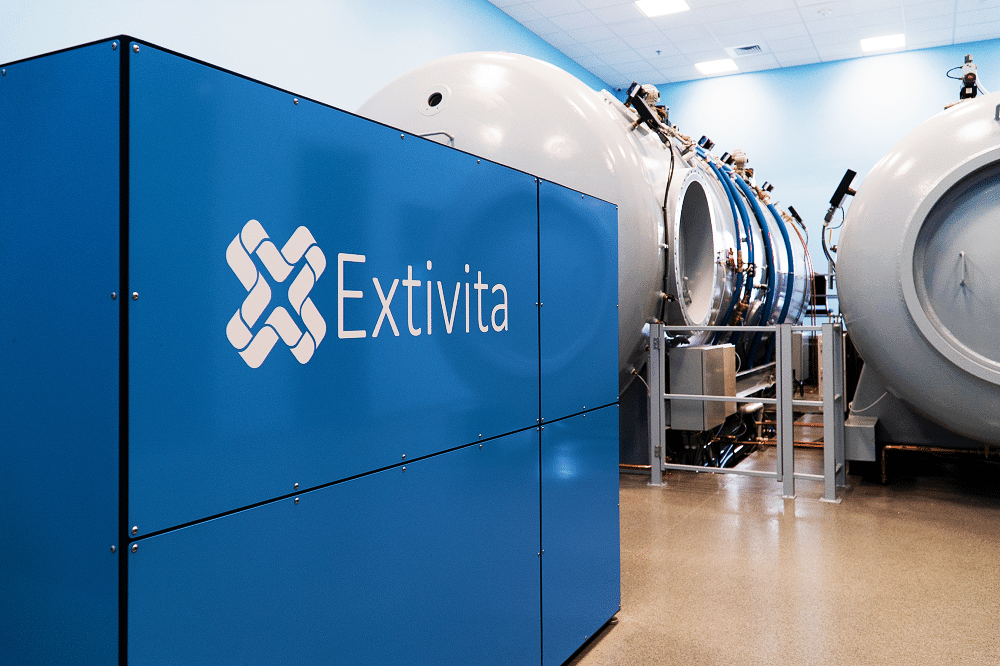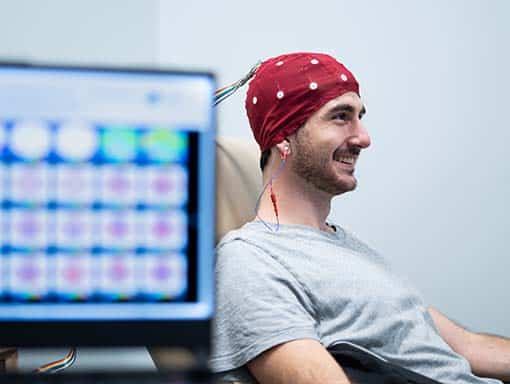Multiple Sclerosis
Multiple Sclerosis (MS) Is a complex neurodegenerative disease that is currently incurable. The disease can cause problems with balance, muscle control, vision and other basic bodily functions. MS is thought to be an inflammatory autoimmune disease in which the body attacks myelin, a critical component of the nervous system. Myelin forms fatty sheaths around nerves, which protects your nerves and facilitates rapid transmission of information throughout your brain. When this myelin is damaged in MS, it can cause mild to significant physical disabilities(1). The hallmark of MS is symptomatic episodes that occur months or years apart (relapses) followed by times of recovery (remission).
Current approaches to treatment include: 1) prevention of disease progression and reduction in relapse rate 2) treatment of acute exacerbations and 3) treatment of chronic symptoms. FDA approved treatments target neuroinflammation by modulating the immune system but not without significant risks(2). Despite new treatments and technologies, therapies to control inflammation and physical symptoms remain ineffective(2).
Extivita Therapies for Multiple Sclerosis:
Extivita Therapies for Multiple Sclerosis Recovery:

Hyperbaric Oxygen Therapy

Neurofeedback

Supplements

Nutritional IV Therapy

Pulsed Electromagnetic Field Therapy
Listen to Sofia’s experience with Hyperbaric Oxygen Therapy to treat Multiple Sclerosis
Hyperbaric Oxygen Therapy for Multiple Sclerosis:

Despite these studies, HBOT is still the mainstay treatment for MS in the United Kingdom as it has shown great potential in decreasing neuroinflammation(2).
HBOT Benefits for MS:
- Modifies Progression of Disease
- Reduces Relapse Rate
- May Restore Acute Blood Brain Barrier Disruption
- Improves Bladder Function
- Increases Energy
Effects of HBOT on Multiple Sclerosis:

Decreased Inflammation

Increased Stem Cell Activity
Hyperbaric oxygen therapy mobilizes stem progenitor cells (SPCs) from the bone marrow, creating the opportunity for tissue regeneration.

New Blood Vessel Formation
Hyperbaric oxygen therapy stimulates the formation of new blood vessels, healing injured tissues that were unable to get nutrients and oxygen.

Neurofeedback for Multiple Sclerosis:
Multiple sclerosis (MS) affects every individual differently, but research has revealed that a significant percentage of people with MS experience mental health issues in addition to physical impairment. The most common issues are fatigue, depression, and cognitive impairment all of which can have a negative impact on a person’s quality of life(3). Research has shown that using neurofeedback (NF) to reduce the activity of theta and alpha brain waves and increase the activity of beta brain waves effectively reduces ratings of depression and fatigue in people with MS. The NF training is done at the left frontal lobe, and the improvements in depression and fatigue have been shown to persist 2 months after NF training is completed(4). This suggests that NF has the potential to alleviate depression and fatigue in individuals with MS, thus providing these individuals with a higher quality of life.
IV Therapy for Multiple Sclerosis:
Ascorbic acid, or Vitamin C, is a vital antioxidant and a co- factor for biological processes in the body. The highest concentrations of Vitamin C are found in brain tissues and plays a significant role in neuroprotection(5). Clinical studies suggest that neurological diseases are associated with increased free radical generation and subsequent inflammation. Ascorbic acid levels in individuals with MS are significantly lower compared to patients without MS. Because studies have shown that oxidative stress and mitochondrial dysfunction contribute to neurological decline, Vitamin C can play a significant role in alleviating progression via pathological mechanisms implicated in MS(6). Extivita offers IV Vitamin C via Myers cocktail, which significantly increases serum levels of ascorbic acid compared to oral or liposomal supplementation.
How IV Vitamin C Can Help:
- Neutralize free radicals/decrease oxidative stress
- Modulate immune system by reducing protein aggregates, improving cognitive/ motor impairments
- Collagen synthesis to promote myelin sheath formation


Pulsed Electromagnetic Field Therapy for Multiple Sclerosis:
By improving local blood flow, oxygen supply and nutrition can be delivered to depleted tissues which can lead to decrease inflammation. Study participants have reported significant changes in fatigue level, bladder control, cognitive, mobility, spasticity and vision(7).
News & Research for Multiple Sclerosis:
MS treatment gives author new life, energy to start second book
With cautious optimism, Delaney Parker walked into the Stram Center back in December to start new treatments for multiple sclerosis (MS). “I didn’t have expectations, especially not what’s happening...
Rehabilitation for people with multiple sclerosis: an overview of Cochrane Reviews.
Multiple sclerosis (MS) is a major cause of chronic, neurological disability, with a significant long-term disability burden, often requiring comprehensive rehabilitation. To systematically evaluate evidence from published Cochrane Reviews of clinical trials to summarise the evidence regarding the effectiveness and safety of rehabilitation interventions for people with MS (pwMS), to improve patient outcomes, and to highlight current gaps in knowledge. We searched the Cochrane Database of Systematic Reviews up to December 2017, to identify Cochrane Reviews that assessed the effectiveness of organised rehabilitation interventions for pwMS. Two reviewers independently assessed the quality of included reviews, using the Revised Assessment of Multiple Systematic Reviews (R-AMSTAR) tool, and the quality of the evidence for reported outcomes, using the GRADE framework.
Preventive and therapeutic potential of ascorbic acid in neurodegenerative diseases
Abstract In this review, we summarize the involvement of ascorbic acid in neurodegenerative diseases by presenting available evidence on the behavioral and biochemical effects of this compound in animal models of neurodegeneration as well as the use of ascorbic acid...
References
- Bennett, M. and Heard, R. (2010). Hyperbaric Oxygen Therapy for Multiple Sclerosis. CNS Neuroscience & Therapeutics, 16: 115-124. doi:10.1111/j.1755-5949.2009.00129.x
- Perrins, D. and James, P (2005). Long-term hyperbaric oxygenation retards progression in multiple sclerosis patients. IJNN ; 2 (1): 45 – 48
- Siegert, R. J., and D. A. Abernethy. “Depression in Multiple Sclerosis: A Review.” Journal of Neurology, Neurosurgery & Psychiatry, vol. 76, no. 4, BMJ Publishing Group Ltd, Apr. 2005, pp. 469–75. jnnp.bmj.com, doi:10.1136/jnnp.2004.054635.
- Choobforoushzadeh, Azadeh, et al. “Effect of Neurofeedback Training on Depression and Fatigue in Patients with Multiple Sclerosis.” Applied Psychophysiology and Biofeedback, vol. 40, no. 1, Mar. 2015, pp. 1–8. PubMed, doi:10.1007/s10484-014-9267-4
- Kocot, Joanna et al. “Does Vitamin C Influence Neurodegenerative Diseases and Psychiatric Disorders?.” Nutrients vol. 9,7 659. 27 Jun. 2017, doi:10.3390/nu9070659
- Moretti, Morgana et al. “Preventive and therapeutic potential of ascorbic acid in neurodegenerative diseases.” CNS neuroscience & therapeutics vol. 23,12 (2017): 921-929. doi:10.1111/cns.12767
- Piatkowski, Joachim & Kern, Simone & Ziemssen, Tjalf. (2009). Effect of BEMER Magnetic Field Therapy on the Level of Fatigue in Patients with Multiple Sclerosis: A Randomized, Double-Blind Controlled Trial. Journal of alternative and complementary medicine (New York, N.Y.). 15. 507-11. 10.1089/acm.2008.0501.



